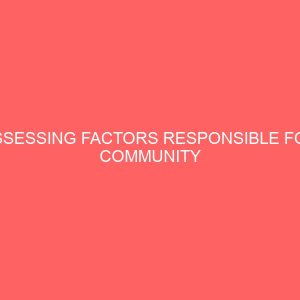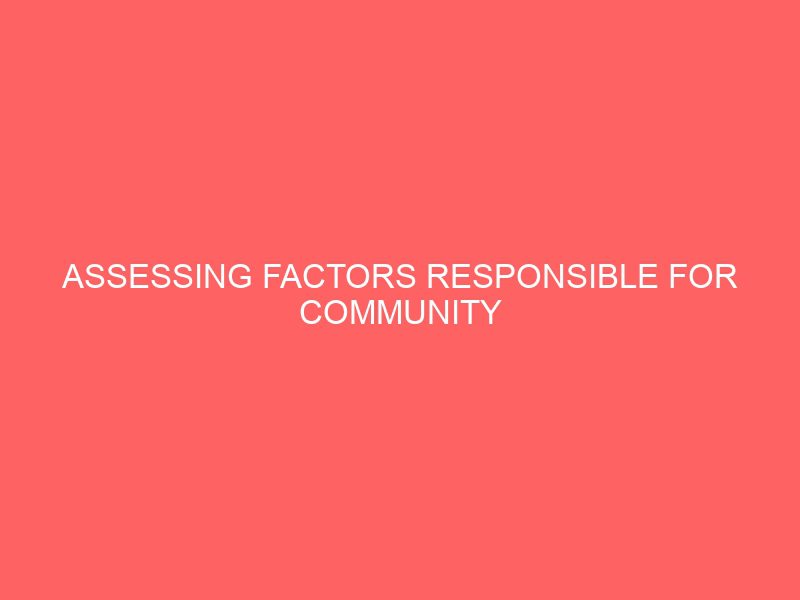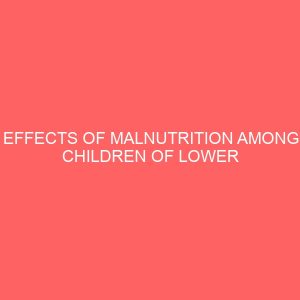Description
Abstract
This research was carried out to study the factors responsible for community self-help projects and rural development in Nigeria with special focus on selected communities in Ado-Odo/Ota LGA. It has been observed that successive governments in Nigeria for too long have neglected the rural communities. There is very little evidence to suggest that past policies of government made a significant impact in terms of accomplishing the improved quality of life for over 70% of Nigerians that live in rural communities. The primary aim was to establish the role of self-help efforts in the development of the rural communities with a view to creating awareness in the rural communities so that they can initiate self-help projects and implement them. A combination of primary and secondary sources of information was used to elicit the data required for the study. A total of 200 questionnaires was administered, out of which 183 were found to be valid and suitable for the study. Data was also gathered from relevant literature reviewed, which included journals, textbooks, gazettes, and other print and electronic materials. Three hypotheses were formulated and tested to give verifiable answers to the problems and objectives of the research. The result indicated a significant relationship between community self-help projects and rural development between people‘s willingness to participate in self-help efforts and the level of rural development and between the insensitivity of government to rural communities and effective rural development efforts. The central point of the findings is that the planning and implementation of self-help projects stimulated the development of the rural communities, despite the odds against rural development in Nigeria.








Reviews
There are no reviews yet.